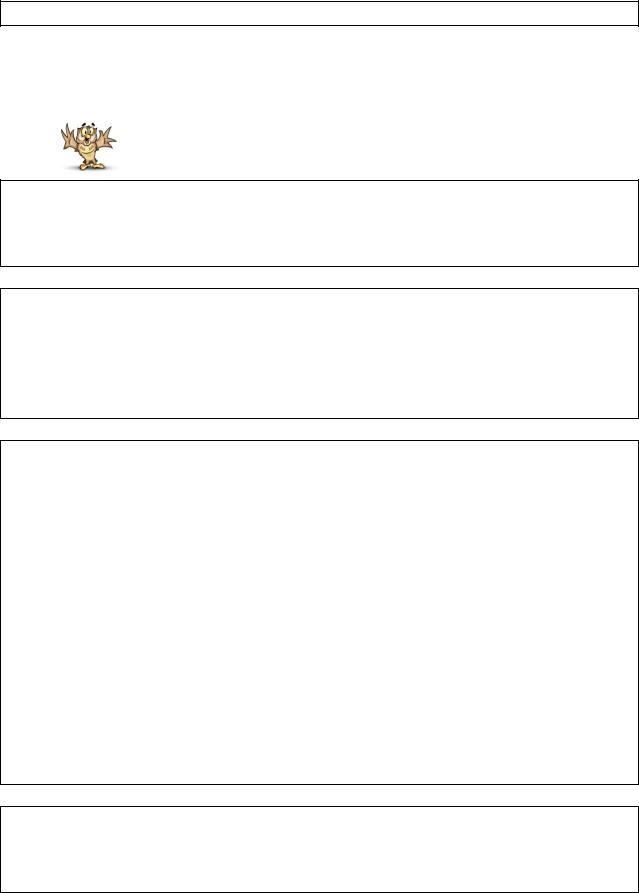
uchebno-poznavatelnaya_sinyaya
.pdf
lighted, sound-proofed and air-conditioned. The furniture, the carpets, the curtains might have been in a first-class hotel. There are splendid libraries and the laboratories are some of the most up-to-date and best equipped in the world. And yet – I know you'll hardly believe it of me, but it's true – I thought longingly of the beauty of those colleges at Oxford and Cambridge with their old, "weather-worn stone," their oak-paneled rooms with their long bare diningtable, and above all with their lovely gardens and lawns.
8e Role-play: Make a dialogue between Student A who has studied at an American college / university and Student B who is going to take a course in this very college.
Questions below can help you:
1.What are the more popular extracurricular activities (or ask specifically about the activity you are interested in)?
2.Are you able to study in your dorm room?
3.Do many students go home or away on weekends?
4.Are professors accessible outside of class?
5.Are campus jobs available?
6.Were you able to register for all the classes you wanted?
7.If you were to do it again, would you choose this college?
8.Did you receive financial aid?
9.What is the social life like at this school?
8f Think of any other questions you would like to ask if you were a freshman at an American college or university. Try to make questions of different types.
9.READING AND WRITING
9a Look through the following tips how to survive in an American college or university.
TEN TIPS YOU NEED TO SURVIVE IN COLLEGE
1.If you haven't already registered, try not to schedule back to back classes. You'll wear yourself out besides missing the best times to study - right before and right after class.
2.Begin the first day of class. Know what's expected of you. Take notes from the first day even if it is routine stuff you think you already know.
3.Establish a routine time to study for each class. For every hour you spend in class, you will probably need to study two hours outside class. Studying for each subject should be at the same time, at the same place, if possible. Study includes more than just doing your homework. You will need to go over your notes from by class, labeling, editing, and making sure you understand them. Study your syllabus daily to see where you are going and where you have been. Be sure to do reading
52

assignments. (Don't put them off just because there's not a written assignment.) Read ahead whenever possible. Prepare for each class as if there will be a pop quiz.
4.Establish a place to study. Your place should have a desk, comfortable chair, good lighting, all the supplies you need etc., and of course, should be as free of distractions as possible. It should not be a place where you routinely do other things. It should be your study place.
5.Do as much of your studying in the daytime as you can. What takes you an hour to do during the day may take you an hour and a half at night.
6.Schedule breaks. Take a ten-minute break after every hour of study. If possible, avoid long blocks of time for studying. Spread out several short study sessions during the day.
7.Make use of study resources on campus. Find out about and use labs, tutors, videos, computer programs, and alternate texts. Sign up for an orientation session in the campus library and computer facilities. Get to know your professors and advisors. Ask questions. "I didn't know," or "I didn't understand" is never an excuse.
8.Find at least one or two students in each class to study with. Studies show that students who study with someone routinely make better grades. You will probably find yourself more motivated if you know someone else cares about what you are doing in the class. Teaching a concept or new idea to someone else is a sure way for you to understand it. Studying in a group or with a partner can sometimes become too social. It is important to stay focused.
9.Study the hardest subject first. Work on your hardest subjects at a time when you are fresh. Putting them off until you're tired compounds the problem.
10.Be good to yourself. Studying on four hours of sleep and an empty stomach or junk food diet is a waste of time. Avoid food and drink containing caffeine just before or just after studying.
9b Compose your list of ten tips giving advice how to survive in our university.
9c Write a letter to your parents or friends about your ways of surviving college / university.
10.SPEAKING
10a Role play:
Student A is a sophomore and is giving some good advice to Student B who is a freshman and wants to know about his/her future student's life.
Words below can help you.
Extracurricular activities, dorm, campus jobs, to register for the classes, financial aid, facilities, to meet demands, get around campus, get involved, campus activities, resident director, housing officials, diverse opportunities, to swap rooms,
53

to "hang out" with classmates, social and educational programs, clubs and organizations, students with similar likes and talents, club athletics.
11.READING, SPEAKING AND LISTENING /WATCHING
11a Read the text below and consider the headings for each paragraph. Compare this information with your ideas about campus life of universities in the United States.
CAMPUS LIFE AND RESIDENCE HALL IN US
A. Campus housing in the USA is guaranteed for all students, who maintain a 1.8 cumulative grade point average (GPA). Any student whose GPA drops below a 1.8 may apply for an exception to the policy. If an exception is not granted the student must vacate his/her space in campus housing.
B. Although one can stroll from one end of campus to the other in just 10 minutes, there are usually many trees and beautiful grassy malls. In addition to classrooms, laboratories and residence halls campus facilities may include a student center, art gallery, chapel auditorium, bookstore, fitness center, library etc. There is also a satellite to receive international broadcasts and computer labs with free e-mail and Internet access for students.
C. As a rule campus has several residence halls available for students. University residence halls in the USA can include suites, apartments, or other options. Some residence halls are reserved for females or males while the others are coed by floor. Frequently first year, transfer and upper-class students live in different buildings. Residence halls in US differ in style. There are modular style, balcony style, commons style, corridor style, ramp style and apartment style halls (each apartment consists of two bedrooms and two bathrooms, a living room, a dining area, and a fully equipped kitchen). Suite style halls, which combine the benefits of a traditional residence hall with the apartment-style housing, are mostly popular. These halls are comprised of two bedrooms connected by one bathroom. Residence halls accommodate one-four people per unit, and feature many modern conveniences, such as laundry facilities, computer labs, study rooms, TV lounge and Internet access. Handicapped accessible rooms are available almost in every residence hall; they are located on the ground floor as there are no elevators in four-five storied buildings. Rooms are sparsely furnished, so students may provide the things that will make them feel like at home.
D. As a rule over 90% of the students live on campus. Residential life at the university cultivates the social, physical, and intellectual development of students by creating a community atmosphere in which growth and responsibility are encouraged and supported by the staff. Residence Hall Staff may consist of several
54

full time professionals who live in the residence halls: Residence Hall Director, an Assistant Director for First Year Experience, Residence Coordinators and a graduate assistant, Academic Teaming Assistants. Resident Assistants live on every floor being available during business hours, on call in the evenings. They hold regular floor/wing meetings to provide information, discuss planned and potential programming, talk about community standards on the wing, provide programs designed to help students make connections and participate in the hall and floor community. Information at the meetings is often vital: what to do to change rooms; how to check out at the end of the semester; how to evaluate your resident assistant; how to go through the room selection process. Academic Teaming Assistants are available for tutoring, and assistance in forming study groups. They also coordinate educational programs and bring faculty members to the residence halls to interact with students outside of the classroom. The front desk of every traditional residence hall is attended from 8:00 am until midnight by a Desk Assistant — a student trained in security and guest procedures, and from midnight until 8:00 am by a Security Officer. Security staff is on duty 24 hours a day in residence halls and across campus.
E. Dorm life provides the foundation of the social life. Usually campus is alive with an array of theater, dance, and music performances, as well as movies, guest speakers, and the activities of clubs and organizations. Student government, political and community service organizations, newspaper, yearbook, and a pep band are just a few of the student organizations that keep life on campus interesting and fun.
F. The Department of Housing and Residence Life believes that living in a residence hall is a valuable educational experience. Students learn and refine life skills in an environment that exposes them to great diversity of lifestyles. The residence hall experience is one that compliments the classroom experience. Students have opportunities to apply what they learn, to question each other, study with each other and attend programs and activities designed to facilitate learning. The students and staff who reside in the halls create the environment, which all students have a responsibility to respect and contribute to. A GPA requirement is a tool used to reinforce the commitment expected of resident students. The Department of Housing and Residence Life actively promotes responsible decision-making and good learning habits. It is its goal to retain students with a strong interest in contributing to the learning-living environment.
11b Answer the questions to the text:
1.Is housing on campus guaranteed for all students in the United States?
2.What facilities does a campus typically have?
3.What types of residence halls are there in US?
4.What did you learn about Residence Hall staff?
55

5.How does residential life at the university cultivate the social, physical, and intellectual development of students?
11c Discussion. Is it possible to draw a parallel between the American residence halls and Russian hostels? Do Russian hostels vary in style? Why? If you live in a hostel, describe it.
11d Listen to L4.2 / watch V4.2 the student interview. Where and why do you think this short interview is taken?
WATCH AND STUDY ABROAD 4
Watch the video clip about Bilbao, Spain W4 (5min) and answer some questions:
How many people speak about Bilbao in this video clip? Who are these people?
What are their occupations?
What courses does the program offer?
What non-academic activities the participants of the program can be involved in?
UNIT 5
Academic Mobility
In this unit you will:
Read about summer courses and school experiences abroad
Talk about exchange programs, summer schools and doing a language course Test your knowledge about participating in different programs
Practice discussing, asking and responding, summarizing, presenting Listen to students speaking about their academic experience Write an application, an e-mail, a formal letter, a report
1.LEAD-IN
56

1a Look at the pictures and messages and discuss with your partner: what idea unites them.
1b Can you explain the term “academic mobility”? If “yes”, please, answer the question: “Why do people go somewhere (far from home) to study?”
1c Translate into English the following sayings:
Стремись завоевать не мир, а его знание. (Туркменская пословица)
Мудрец известен знаниями, а не происхождением. (Ассирийская пословица)
Знание - сокровище, которое повсюду следует за тем, кто им обладает.
(Китайская пословица)
2.READING AND SPEAKING
57

2a Read the article written by the students of Voronezh State University. Put the paragraphs in the right order.
2b Discuss with you partner:
1.Are such exchange programs useful and practical?
2.What do you like / don’t you like about this type of studying?
3.What would you like to study / visit in a foreign country if you participated in such a program?
A month in Great Britain
A Every day we had morning and evening classes. The morning classes were usually based on topics related to British culture such as the monarchy, crime and punishment, education, art and fashion, food and drink, the media. We practiced all language skills, but concentrated on improving our ability to speak and understand English in a wide range of situations. In the afternoons we continued the discussion of the morning topics or prepared our project works. It was very interesting to do the projects because it was in the form of the survey: we asked people in the streets the questions on a particular theme and then at the lesson we shared our information with other students in the class. All the teachers were very friendly, creative and artistic. When we didn't understand anything they would always help us and try to explain the material very clearly.
BLast summer thanks to the support of the faculty of foreign languages we had a great chance of developing communication skills in English doing the course called «English language and culture» at the University of Bath. This course was like entertainment because it was full of creative tasks and games which are very helpful when you are studying English. It was aimed to expand the knowledge of students from different countries about the English language and culture. We studied in the same group with people from China, Italy and Spain. It was a fantastic opportunity to learn not only amazing facts about the English culture but about customs and traditions of these countries as well as we were working in pairs during the lesson discussing different things, exchanging the opinions about different subjects.
CAnd of course we spent a lot of time walking along the streets of Bath. It is one of those rare cities which are very easy to fall in love. Two thousand years ago, with most of the world at their feet, the Romans recognized the unique qualities of Bath and settled there. It is a little wonder: set in a sheltered valley, surrounded, like Rome, by seven wooden hills and nourished by Britain’s only natural hot springs, it is to this day a natural heaven.
58

DThere were special people, the so called student helpers, who assisted us in difficult situations and gave us valuable advice. They were also responsible for the social program which included such evening activities as cinema trips, sports activities and weekend visits to different places of interest. During 4 weeks we managed to visit Cardiff, London, Oxford, Bristol, Stonehenge and Salisbury, Cheddar Gorge and Wells, Stourhead garden.
EWe also experienced a taste of history at the oldest house in Bath – «Sally Lunn’s». The world famous buns are still baked by hand to Sally Lunn’s original secret recipe.
FThis comfortably sized city is packed with places to visit. First of all we visited the Roman Baths built around the natural hot spring which temperature rises to 46°C. The remains are remarkably complete and among the finest in Europe. They include sculptures, coins, jewellery and the gilt bronze head of the goddess Sulis Minerva, which is considered to be the symbol of Bath.
GBath is a birthplace of Jane Austen that’s why we went to the Jane Austen Centre which celebrates Bath's most famous resident with a permanent exhibition with displays of her life and family, unique photographic enlargements, elegant costumes, a specially made film, well-stocked Giftshop and much more.
HWe are sure that there is no girl who could pass such a place as the Museum of Costume, the finest museum of fashionable garments in the world. The story of fashion over the last 400 years is brought alive there. We could see the displays which include 200 dressed figures to illustrate the changing styles in fashionable clothes from the late 16th century to the present day.
K We are convinced that we will never forget this trip because it was our first visit abroad and it impressed us greatly. We were not only able to see so many picturesque and beautiful places of England, but we could touch the English culture as well.
JKate Podkolzina, Irina Zotova
Department of Romance and Germanic Philology
ISo if you want to spend a month in the unique natural resort and improve your English at the same time, don’t hesitate - go to Bath!!!
2c Some of the paragraphs in the article sound like pieces of advertisement. Find them. Which of the “ads” appeals to you most of all? Why?
59

2d You are going to read an article by the students of Voronezh State University who studied in summer school in Europe.
How much do you know about summer schools in Europe? Are there any opportunities for students of different countries to have summer schooling in Russia?
Read the text. Consider the headings that you think best summarize each paragraph.
Summer School in Italy
AHot summer 2004.August. Students are enjoying themselves on the beaches in Crimea and (of course!) at the native river Usmanka. But as for my friend and me, we decided to… study. Well, we are normal students and like to have a rest. But to spend 5 weeks in Italy, training your English and Math with an opportunity to visit Rome, Florence, Venice; to live in a small picturesque Italian town – I think all this justify our “crave” for studying during summer holidays.
BOur summer courses took place in an ancient town, called Perugia from the 2nd of August till the 4th of September. We attended classes in Probability and Statistics: two lectures in the morning and one seminar after traditional “siesta”. This long afternoon Italian rest is justified: it’s really difficult to make yourself do
something in such heat. Though Italians said that we were lucky: this summer wasn’t hot - “only” +350C - +400C.
CAs the summer school which we attended is international, lectures were in English. It happened so that our group consisted mainly of Italian students and our both lecturers were also Italian. So the most complicated problems were explained in Italian, which, of course, wasn’t easy for us. But we had another advantage – nobody could understand Russian. So we could prompt our Russian friends who came to the blackboard (there were five of us from Russia). There was a French boy in our group, who knew neither English nor Italian. But he was really clever and knew Math well. As a result, he somehow understood the lectures and the lecturers sometimes understood him. So not only English can be an international language.
DThis International Mathematical Summer School in Perugia has existed for 30 years already. Professors from Germany, the USA, Israel, Hungary are invited to lecture there. Our lecturers Pietro Rigo (Siena University, Italy) and Alberto Gandolfi (Florence University, Italy) attended these summer courses correspondingly 15 and 30 years ago as students and this year returned to lecture there.
60

E Pietro Rigo, who was teaching Statistics, was apologizing constantly for his bad English (his pronunciation of English words wasn’t clear even for Italian students) and often repeated that Russian Mathematical School, especially in Probability was always very strong. Once he asked us to write the Russian equivalent of “Probability” and said that he recognized this word as he knew Russian magazine with such title. As for the other professor, Alberto Gandolfi, he said, when he was 30 years ago in this school he was studying all the time. No wonder both his Math and English were so good. Every lesson he gave us a written homework and provided us with a lot of extra information about the topics we were studying. At the end of the course we had so many copies from different books that our luggage became 3-4 kg heavier.
F There is a good tradition in the school to organize a party for every group. So at the beginning of the course we went out for dinner twice – with Statistics and Probability’s groups and, of course, with our lecturers. As these two mathematical subjects are closely connected, almost all who listened to one subject, also attended classes in the other one. So we had a very friendly international company. We still keep in touch with some of our new friends: share photos and recall our “hot“ days in Perugia.
GAt the end of the courses we had control tests (with such strong Russian mathematical school and clever new friends we couldn’t fail them) and the final party with the staff of the school and all the students.
HDuring our stay at the school we were torn between the necessity of not changing the opinion about Russian mathematical school for the worst and the wish just to enjoy holidays abroad. As for us we still don’t know what was more important for us: the knowledge we got or the impressions of being there. As Italians say: “Chi vivra`, vedra…” (Let’s live and we will see).
IBeing in the country with such ancient history we couldn’t lose an opportunity to get acquainted with its great culture and feel the spirit of this country. No wonder that impressions overwhelmed us.
Here are some of the brightest… During our stay in Italy we plunged into the total calmness of the small ancient town Assisi. It is situated on the mountain and when you are higher than clouds and everything at the bottom is unnaturally small you feel absolute freedom and only a huge old castle at the very top reminds you that you are not alone. We were also able to visit the Adriatic Sea and have a real rest, lying on the beach, swimming and enjoying the nice views of mountains, ships and the company of our new friends.
JOf course we would never forget the ancient town Perugia, where we walked every evening, went shopping, talked with our Italian friends. One of our brightest
61
